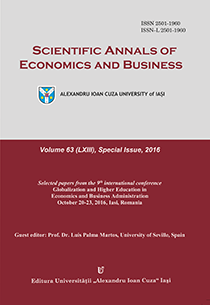Efficient use of behavioral tools to reduce electricity demand of domestic consumers
Efficient use of behavioral tools to reduce electricity demand of domestic consumers
Author(s): Shimon Elbaz, Adriana ZaitSubject(s): Business Economy / Management, Economic policy, Methodology and research technology, Fiscal Politics / Budgeting
Published by: Editura Universităţii »Alexandru Ioan Cuza« din Iaşi
Keywords: electricity demand; energy efficiency; behavioral economics; neoclassical economics; consumer behavior;
Summary/Abstract: Purpose: The present study investigated the main literature on the subject of methods and policies for reducing the electricity demand of domestic consumers, in order to identify the place of behavioral tools. Methodology: We used secondary sources, performing a literature review, together with analysis and synthesis. Findings: Policy makers prefer to use tools offered by neoclassical economics, such as various forms of taxation, fines and financial incentives in order to make domestic electricity consumers save electricity, on the assumption that consumers will make rational decisions while maximizing their personal benefit. However, studies conducted in recent years in the field of behavioral economics, which are based on the assumption that consumers’ decisions are not rational and are affected by cognitive biases, showed that the use of behavioral tools, such as detailed online information (feedback),social comparison information, information on varying rates (dynamic pricing) and general information (advertising campaign), are tools that are not less appropriate than the ones the neoclassical economics offers, mainly because electricity is an invisible product and consumers are unable to assess it by normal cognitive measures. Using an interdisciplinary combination of behavioral tools that come from a variety of approaches taken from a wide variety of different academic fields, it is possible to receive efficient results in the endeavor of reducing electricity demand. Implications: Although the neoclassical economics still remains the fundamental theory used by policymakers, it is recommended to consider behavioral economics as a complementary approach to the neoclassical economics, and combine behavioral tools in the policymakers’ toolbox, especially when those tools do not require a significant financial investment, thus efficiently maximizing the reduction of electricity demand among domestic consumers. These theoretical results will be used for designing future empirical researches on the efficiency of behavioral tools in changing the pattern of electricity consumers’ behavior.
Journal: Scientific Annals of Economics and Business
- Issue Year: 63/2016
- Issue No: Spec
- Page Range: 89-107
- Page Count: 19
- Language: English

